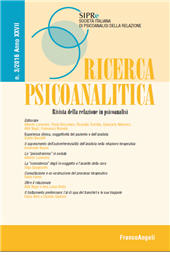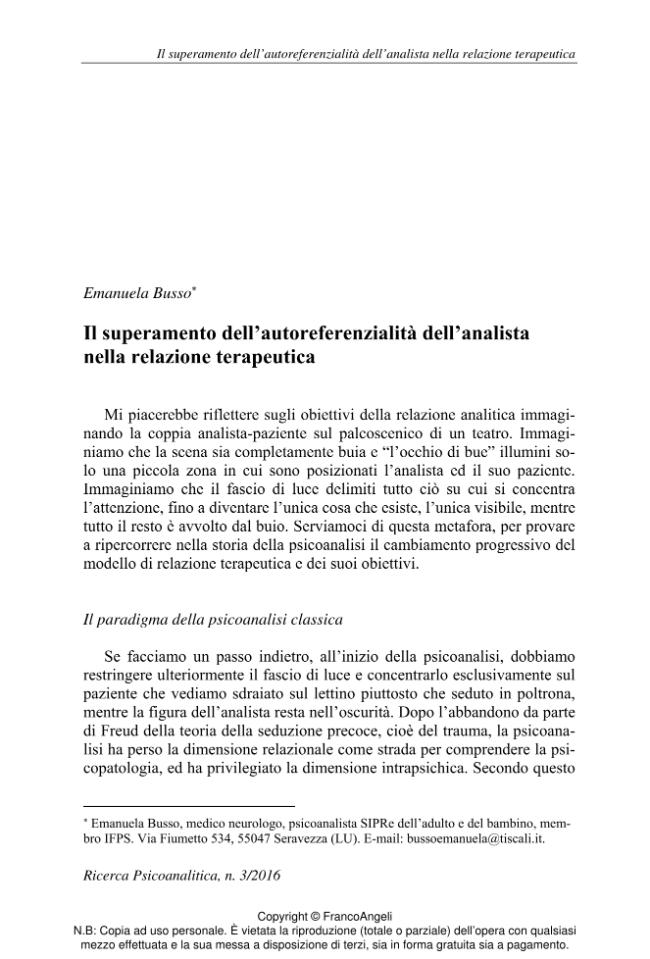Il superamento dell'autoreferenzialità dell'analista nella relazione terapeutica
25-40 p.
La psicoanalisi è nata come strumento terapeutico. L'obiettivo dell'analista è curare il paziente, che a sua volta chiede di essere curato per raggiungere una condizione di maggiore benessere o di alleviamento della sofferenza. Da sempre la relazione analista-paziente si è costituita come lo strumento fondamentale della terapia. Dall'analista "archeologo" di Freud, all'analista co-costruttore della relazione e del percorso analitico della psicoanalisi relazionale, in ogni caso alla coppia analista-paziente viene riferito gran parte di ciò che accade e di cui si parla in seduta. Nel primo caso l'attenzione al passato del paziente, nel secondo al presente vissuto da entrambi in seduta. Ritengo che in questo cammino della psicoanalisi l'autoreferenzialità dell'analista sia rimasta invariata. La vita del paziente è fuori dallo studio, ma la realtà spesso resta sullo sfondo, mentre dovrebbe costituire il centro dell'attenzione di entrambi, perché è nel miglioramento della vita del paziente l'obiettivo di cura, ed.
il lavoro analitico deve servire al futuro del paziente. Solo con una diagnosi e una terapia che tengano conto del contesto relazionale del paziente, è possibile un vero cambiamento. [Testo dell'editore].
Psychoanalysis was born as a therapeutic tool. The analyst's aim was to heal the patient who in turn comes to be healed hoping to reach a state of wellbeing or to suffer less. The analyst-patient relation has always been established as the basic tool for therapy. From Freud's "archeologist" analyst to the analyst co-constructing the relation and the course of analysis of relational analysis, in each case it is to the analyst-patient couple that we refer most of what takes place in a session. In the first case attention is paid to the patient's past while in the second attention is paid to the present experienced by both parties in the session. I think that in this way of conducting psychoanalysis the analyst's self-referentiality has remained unchanged. The patient's life is outside the consulting room, but reality is often left on the background, while it should be the focus for both participants because the aim of therapy is improving the patient's life and analytical work must be at the service of the pati
ent's future. Only if diagnosis and therapy keep account of the patient's relational context can we reach true change. [Publisher's Text].
-
Artículos del mismo número (disponibles individualmente)
-
Información
Código DOI: 10.3280/RPR2016-003003
ISSN: 2037-7851
KEYWORDS
- Relazione analitica, significato relazionale del sintomo, modello della complessità, contesto relazionale, cambiamento
- Analytical relation, relational meaning of symptoms, complexity model, relational context, change



